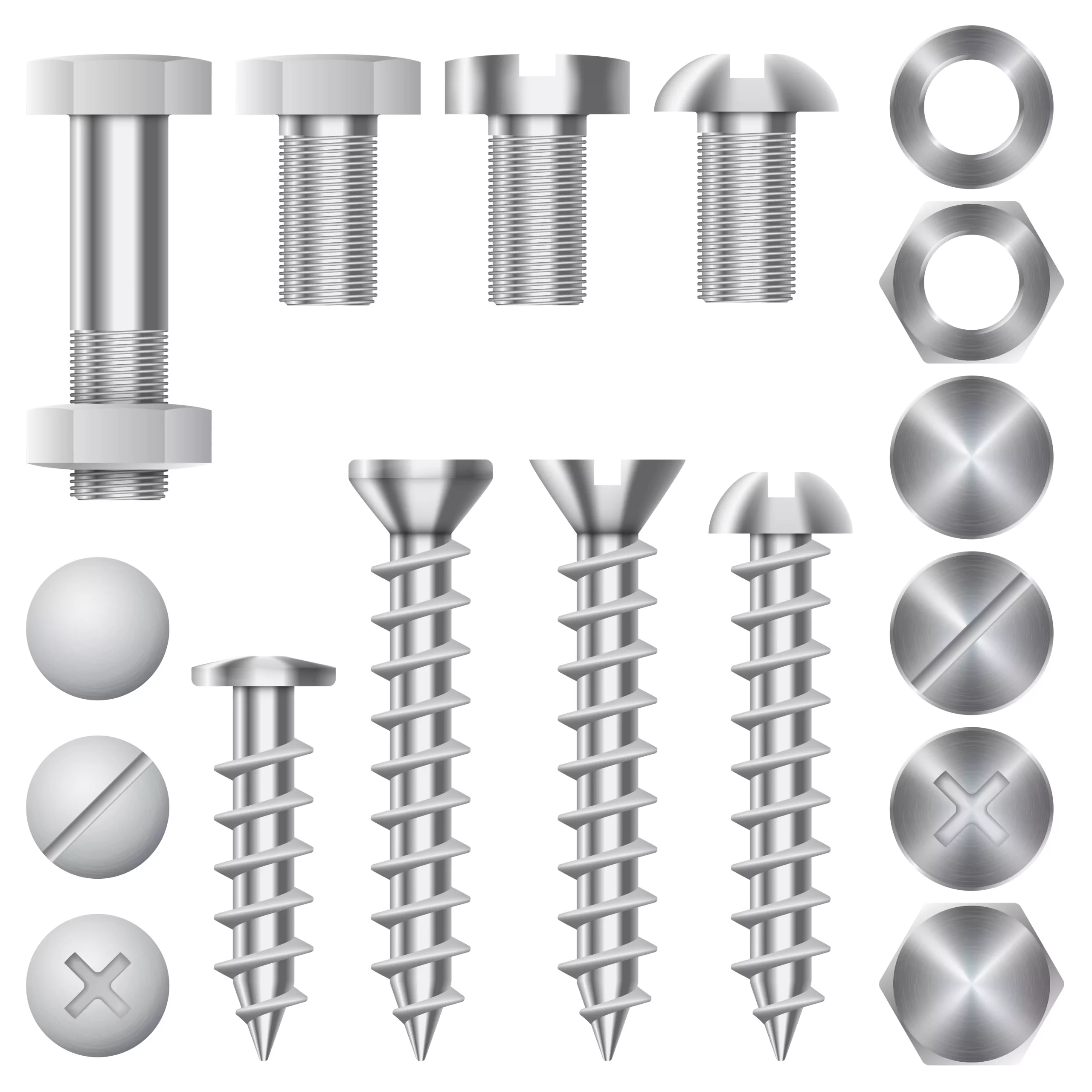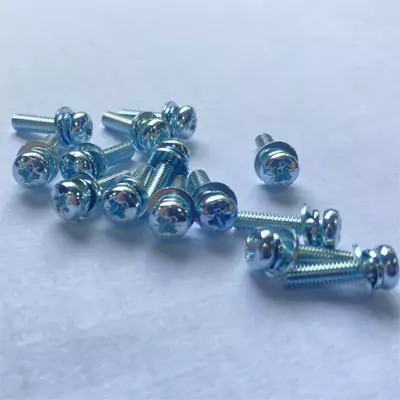caTEGORIES
Tags
Analyzing Screw Failures: Common Issues and How to Address Them

Posted: May 15, 2025
Categories: News
Tags: news
Screws can become ineffective due to stretching force loads shearing stress situations wearing out over time or rusting away typically resulting from defects in the material used, incorrect installation techniques or exposure to harsh conditions. Enhanced screw designs such as strengthened threading and protective coverings can enhance their longevity. Effective remedies involve the use of torque instruments, rust-resistant materials (e.g., stainless steel), and specialized metal compositions for demanding stress scenarios. QEWIT Fasteners provides quality assured customized fasteners to prevent these issues effectively.
Overview of Common Screw Failure Modes
What Causes Tensile Failure in Screws?
When a screw is under much pressure and breaks or stretches out due to its limitations in strength known as tensile failure is a prevalent issue in situations where screws have to bear significant axial loads load capacity depends mainly on the material quality and production methods used in making them high grade steel screws, like those meeting DIN 933 requirements are less likely to fail under such circumstances. These bolts are crafted from either carbon steel or stainless steel. Come in variations such as 8 steel grade 10 or 12 steel grade 10, and 12 steel grade nine point nine, respectively. Ensuring the choice of material and following load requirements diligently can help avoid any risk of tensile failure.
How Do Shear Failures Occur in Screws?
When a screw snaps apart across its width due to the force applied to it its known as shear failure. Commonly seen in situations with side forces or parts that aren’t aligned well. To prevent this risk pick screws with shear strength like self tapping or machine screws, with sturdy threads. Paying attention to detail during installation is crucial to prevent much side pressure.
Why Does Fatigue Cause Screw Failures?
Fatigue damage occurs due to cyclic loading over a period of time despite stress levels being below the maximum capacity of the screw. Such failures typically begin at points where stress is concentrated, like notches and thread roots. To prevent fatigue-related failures, producers utilize techniques such as shot peening for surface treatment and opt for materials, like stainless steel alloys, that offer fatigue strength.
How Does Corrosion Impact Screw Longevity?
Screws can deteriorate due to corrosion caused by reactions with their material which can result in weakened structures and eventual breakdown. The problem is worsened by elements like moisture, salt exposure, and temperature changes. To combat this issue screws are coated with finishes such as zinc plating or hot dipped galvanization. For instance DIN 7985 standard pan head recessed machine screws are equipped with zinc plating to increase their resistance, against corrosion.
Material-Related Factors Contributing to Screw Failures
How Does Material Selection Influence Screw Performance?
The type of material selected significantly impacts the characteristics and longevity of a screw, in different situations.
Why Is Alloy Composition Important for Durability?
Blending metals can boost the durability and strength of screws through alloys that resist corrosion and wear better than pure metals alone do. Like A2 70 and A 470 stainless steel alloys that excel in harsh environments prone to corrosion.
What Role Do Heat Treatment Processes Play?
Processes such, as quenching and tempering are used to improve the hardness and tensile strength of screws while preserving their ductility commonly seen in high quality fasteners to meet usage needs.
Do Surface Treatments Improve Longevity?
Applying surface treatments can greatly increase the durability of screws by shielding them from the effects of the environment and wear and tear caused by factors. You have the choice of using zinc flake coatings for protection against corrosion or opting for black oxide finishes, which offer a mix of visual appeal and moderate resistance to corrosion.
Design and Installation Errors Leading to Failures
What Problems Arise from Over-Tightening or Under-Tightening?
Improperly applying torque during the installation process can result in problems.
- Over-tightening may strip threads or cause permanent deformation.
- Under-tightening can result in loosening under dynamic loads.
By utilizing torque limiting equipment you can securely tighten screws without causing harm to the screw or underlying material.
How Can Thread Stripping Be Prevented?
Excessive force during installation or removal can lead to thread stripping, which occurs when the threads are damaged as a result of this action. To reduce the risk of thread stripping it is advisable to choose screws with threads and ensure that the screw materials and substrates are compatible, with each other.
Why Is Misalignment During Installation Problematic?
Misalignment creates stress distribution, along the screw body which can lead to higher chances of shear failure or fatigue cracks developing over time. Using alignment tools correctly during assembly ensures a distribution of load across the screw body.
If you’re looking for fastening options that cater to various industrial requirements, you might want to check out QEWIT Fasteners Co., Ltd. They have a selection of top notch fasteners such, as threaded inserts, bolts, screws, nuts, washers and more—all produced under strict quality assurance protocols. QEWIT Fasteners Co., Ltd. also provides products tailored to meet specific customer needs.
Environmental Factors Affecting Screw Performance
How Do High-Temperature Environments Impact Screws?
In environments with temperatures screws can undergo thermal expansion potentially causing dimensional shifts and added strain in the material. This effect often leads to loosening and distortion of the fasteners. The selection of materials plays a role in this scenario; for instance, stainless steel variants such as A2–70 and A4–70 offer exceptional durability against thermal stress thanks to their superior heat resistance and mechanical strength. These types of alloys are frequently employed in settings where temperature changes occur regularly. Taking into account thermal expansion coefficients during installation can help reduce these risks.
How Can Humid or Saltwater Conditions Be Managed?
What Are Effective Prevention Strategies for Corrosion?
Exposure to humidity or salty environments speeds up the rust process in screws made of carbon steel specifically. Rust not weakens the strength of the screws but also affects their overall performance negatively. Using coatings like zinc plating or hot-dipped galvanization can effectively shield against moisture and salt exposure. For example pan head screws with bright zinc plating meeting DIN 7985 guidelines provide protection, against corrosion in tough conditions. Furthermore choosing materials such as steel or using anti corrosion methods, like zinc flake coatings can greatly increase the durability of screws in such situations.
Preventative Measures for Screw Failures
Why Is Proper Torque Application Crucial?
Applying torque often leads to screw failures being a major issue in fastening tasks. Over-tightening can damage threads. Distort the screw whereas insufficient tightening may cause loosening when exposed to varying loads. To achieve tightening within specified limits and reduce installation mistakes while enhancing the lifespan of fasteners, it is crucial to utilize torque wrenches and electric torque drivers as essential tools in fastening operations.
How Do Protective Coatings Enhance Resistance?
Which Anti-Corrosion Coatings Are Best for Specific Applications?
Protective coatings are crucial for improving the durability of screws by guarding them against environmental elements such as moisture and chemicals. Zinc flake coatings are known to be highly efficient in scenarios where strong resistance against corrosion is a necessity. Take hexagon head bolts with zinc flake finishes as an illustration; they provide protection while retaining mechanical integrity. These coatings adhere to industry regulations and are well-suited for outdoor or marine settings. Selecting the coating tailored to the particular requirements of an application guarantees top-notch performance.
Recommendations for QEWIT Products in Addressing Screw Failures
Enhanced fastener designs make a difference in longevity by including elements such as strengthened threads and grooved edges that help prevent loosening when exposed to movement and varying pressures. Applied locking patches improve the hold further and decrease the likelihood of wear and tear in intense operating conditions. These advancements guarantee extended usage lifespan. Decreased upkeep expenses, which are particularly suitable for rigorous industrial settings.
What Solutions Are Available for High-Stress Applications?
Why Choose Specialized Alloys?
In situations of tension, fastenings created from specific metal blends offer excellent efficiency in performance levels. In these alloys, have been developed to endure pressures and environmental obstacles while maintaining their overall structural resilience. Components are manufactured using stainless steel grade A2. 70 And A4 80 Showcase this feature. These materials possess tensile strength and a resistance to corrosion that render them appropriate for challenging industrial uses.
How Do Customized Coating Options Add Value?
Tailored coatings designed for operational needs improve the durability of fasteners even more effectively with choices like mechanical galvanization or Geomet coatings, providing strong defense against both wear and corrosion to ensure the continued performance of fasteners in demanding environments.
How Do Advanced Fastener Designs Improve Durability?
Creative design elements like strengthened threads and grooved edges or adhesive locking coatings boost the resilience of screws by tackling issues such, as loosening or wearinesss when incorporated into your fastening solutions enhancing their endurance and optimizing lasting efficiency.
If you’re looking for top notch fasteners that perform well in a wide range of industrial settings check out QEWIT Fasteners Co., Ltd. They’ve got an array of products, like threaded inserts, bolts, screws, nuts, washers and more—all crafted with strict quality control measures. QEWIT also provides solutions to match your specific needs.
FAQs
Q1. What is the best material for screws in corrosive environments?
A: Stainless steel grades like A2-70 or A4-70 offer excellent resistance to corrosion due to their alloy composition.
Q2. How can I prevent screw failures caused by over-tightening?
A: Use torque-limiting tools such as torque wrenches to ensure accurate tightening without damaging threads.
Q3. What types of protective coatings are recommended for marine applications?
A: Zinc flake coatings or hot-dipped galvanization provide superior protection against saltwater-induced corrosion.


